Confidential documents seen by Mediapart and The Guardian raise questions over the personal involvement of the chief of staff to the Gulf state’s ruler, Sheikh Tamim bin Hamad Al-Thani, in a suspected corruption plot for the attribution of the 2017 World Championships organised by the International Association of Athletics Federations (IAAF).
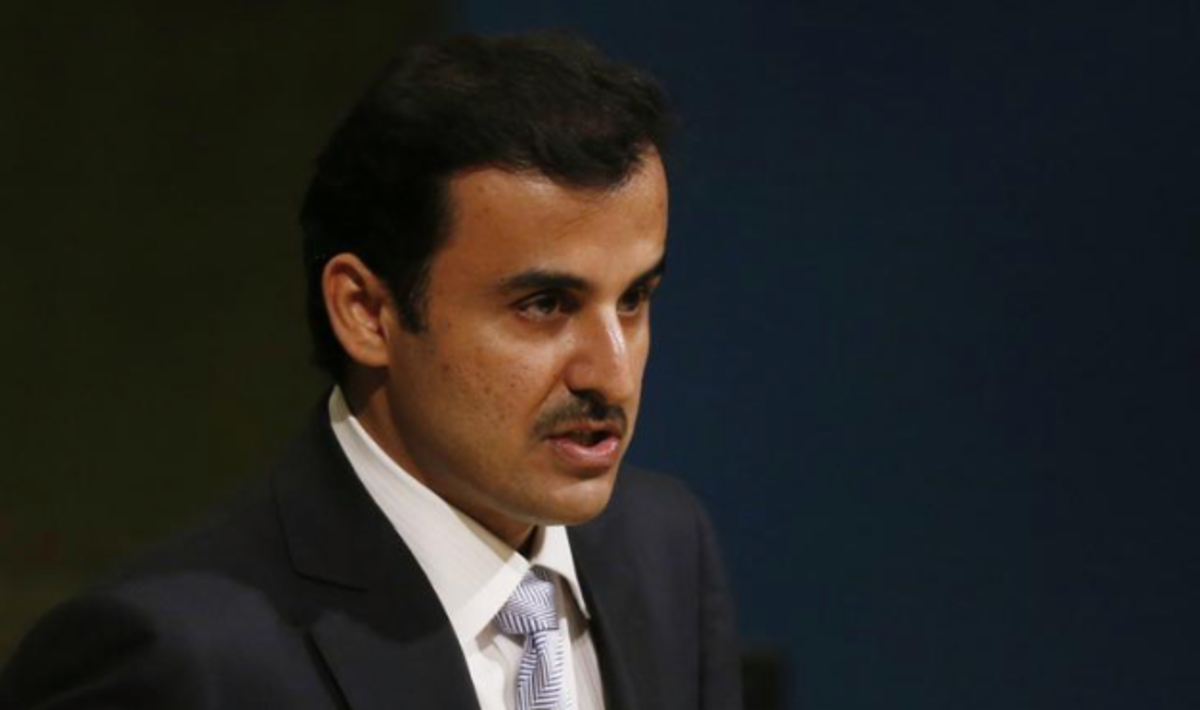
Enlargement : Illustration 1

French investigating magistrate Renaud Van Ruymbeke is leading an ongoing judicial investigation into a vast suspected corruption scandal at the IAAF, which is based in the principality of Monaco, on the French Riviera.
The latest development in the investigation centres on separate transfers in October and November 2011 of a total of 3.5 million dollars to Pamodzi Sports Consulting, a company belonging to Papa Massata Diack, the son of Lamine Diack, the Senegalese former head of the IAAF. Papa Massata Diack was then a marketing consultant to the IAAF and in charge of negotiating commercial rights for the IAAF’s competitions.
The transfer was made by Oryx Qatar Sport Investments (Oryx QSI), a Qatari-registered company managed by a brother of Nasser Al-Khelaifi, chairman and CEO of the BeIN Media group and president of football club Paris Saint-Germain (PSG).
Oryx QSI had pledged to buy the commercial rights to the 2017 World Championships, on condition that they would be held in Qatar. A contract drawn up for the acquisition allowed for a payment of 3.5 million dollars as part of “the campaign” over the bid.
A confidential email dated October 6th 2011, a week before the first payment was made to Papa Massata Diack, shows that a sum of 5 million dollars (of which 400,000 was to be paid in cash) was negotiated between him and the chief of staff for Sheikh Tamim bin Hamad Al-Thani, then crown prince and who is now, since 2013, the Qatari Emir.
Our investigation also shows that Nasser Al-Khelaifi, chairman and CEO of BeIN Sport media group and president of French football club PSG, personally played a role in Qatar’s campaign to win the 2017 athletics championships, and also the 2020 Olympic Games, contrary to what he claimed during questioning by Judge Van Ruymbeke.
An email previously cited by The Guardian, and which has been seen in full by Mediapart, showed that Papa Massata Diack travelled to the Qatari capital Doha on October 4th 2011, along with a delegation from the IAAF which was tasked with studying the sites intended as venues for the 2017 World Championships events. Two days later, Papa Massata Diack wrote to a Qatari official who he addressed as “Dear Sheikh Khalid”.
After thanking his correspondent for the welcome he received in Doha, Papa Massata Diack, aka PMD, wrote, in occasionally faulty English: “Please find enclosed the IAAF letter of affirmation that QSI [Qatar Sports Investments] or Oryx QSI is asking. I do not owe it to them but to Your HH and yourself as only you know the role I play in this matter.”
“Attached is also the bank account details for the transfer to be done of US$4.500.000 as agreed; the balance of US$440,000 is to stay in Doha cash as I will collect it there when I came next.”
He added that the payment should be made “urgently today so that I can finalize things with the president” to whom he would present a “signed contract”.

Enlargement : Illustration 2
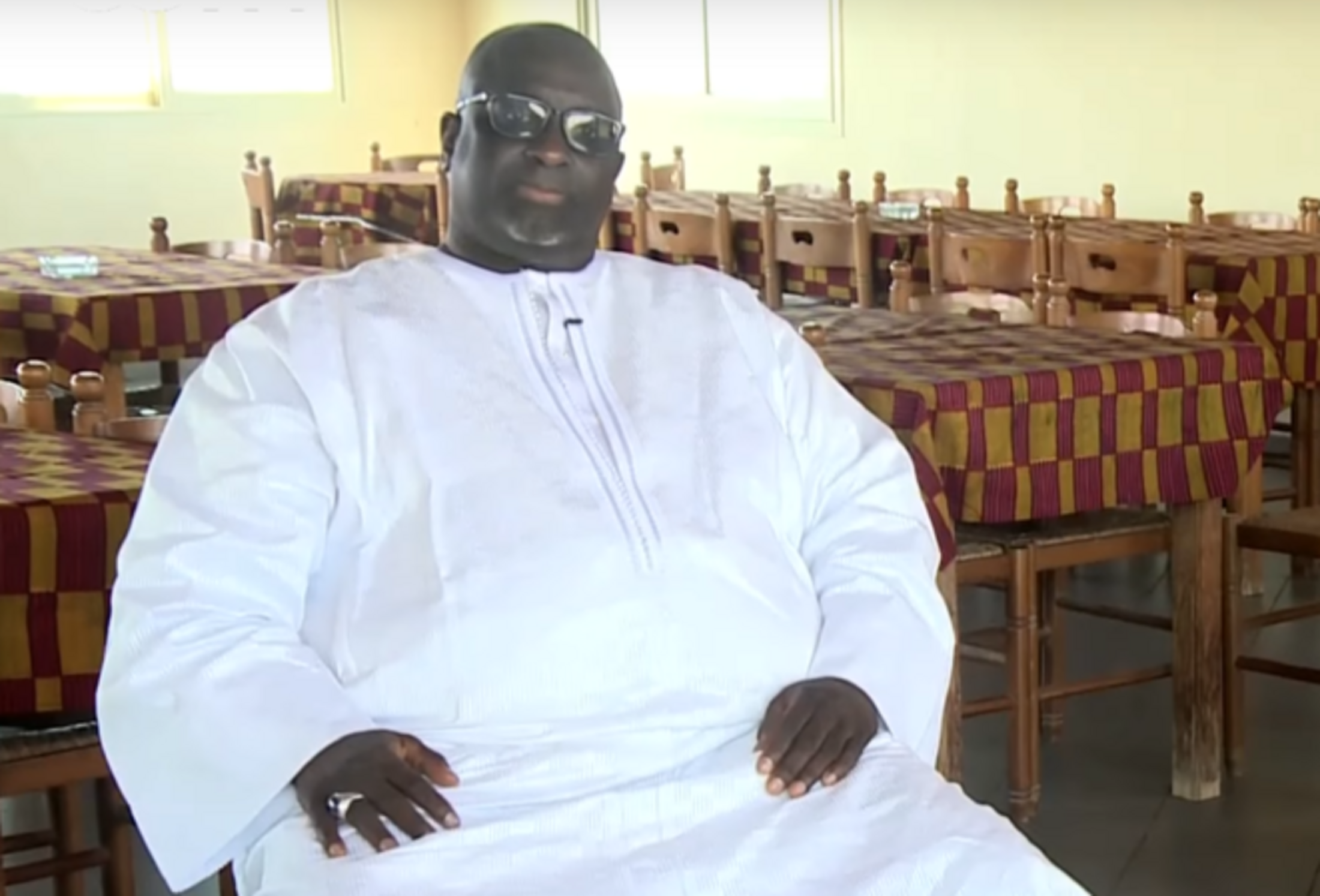
The “president” he mentioned is not named, but it can be surmised that this referred to his father, Lamine Diack, then president of the IAAF, and that the contract was the agreement between PMD’s Pamodzi Sports Consulting and Oryx QSI, the company managed by one of Nasser Al-Khelaifi’s brothers.
In his October 6th 2011 email to “Sheikh Khaled”, PMD included the Senegalese bank account number for Pamodzi Sports Consulting and a document attesting his position as an official representative for the IAAF. Oryx QSI made a first transfer of 3 million dollars to the Pamodzi account, followed by a second payment, on November 7th 2011, of 500,000 dollars.
“Sheikh Khalid” had a hotmail.com email address which used a pseudonym. After studying dozens of other confidential emails in collaboration with The Guardian, Mediapart can reveal that his full name is Khalid bin Khalifa Al-Thani, a member of the Qatari royal family and chief of staff to the current ruler of Qatar, Emir Sheikh Tamim bin Hamad Al-Thani.
At the time of the events, Tamim bin Hamad Al-Thani was crown prince (he succeeded his father, Sheikh Hamid bin Khalifa Al-Thani after the latter stood down as ruler in 2013), chairman of the Qatari national Olympic committee and a member of the executive board of the International Olympic Committee. His father handed him the task of leading the gas-rich Gulf state’s strategy, among its global ambitions, to host prestigious international sporting events – including its controversial award, in 2010, of the football World Cup in 2022, and which is now the subject of several corruption investigations.
Khalid bin Khalifa Al-Thani has acted as Tamim bin Hamad Al-Thani’s close aide for around ten years, and today remains his chief of staff and a director of the emir’s administrative office, the Amiri Diwan.
The contents of Papa Massata Diack’s email of October 6th 2011 to Sheik Khalid suggest that he was also in contact with the crown prince, who appears to be referred to as “His Highness” (as in “HH”) in the phrase, “I do not owe it to them but to Your HH [sic] and yourself as only you know the role I play in this matter”. The term “Highness” is used in Qatar only in reference to a small number of the most eminent members of the royal family, who include the emir, his spouses and the crown prince.
Until now, the names of Tamim bin Hamad Al-Thani and his chief of staff Khalid bin Khalifa Al-Thani do not appear in the files of the French investigation led by Judge Renaud van Ruymbeke. Neither the emir nor Khalid bin Khalifa Al-Thani responded to requests by Mediapart and The Guardian for comment.
The French investigation is attempting to establish whether the 3.5 million-dollar payment to Papa Massata Diack, beginning one month before the attribution of the 2017 athletics World Championships (which were finally handed to London, while Doha was awarded the 2019 championships) was made in the hope of influencing his father, IAAF president Lamine Diack, or whether it was in return for an agreement established three months earlier by the latter, an influential member of the IOC, by which both the 2017 games and the 2020 Olympic games would be held September – which would have been indispensable if Qatar was to bid for them.
Lamine Diack and his son have already been placed under investigation in the French probe for offences of breach of trust to the detriment of the IAAF, for corruption and aggravated money laundering in relation to the alleged protection of Russian athletes who had failed doping tests, and for corruption in the attribution of the 2016 and 2020 summer Olympics respectively to Rio de Janeiro and Tokyo, when Diack junior is suspected of selling the vote that would be cast by his father.
In 2017, the Court of Arbitration for Sport upheld a lifetime ban on any further involvement in the sport of athletics imposed on Papa Massata Diack by the IAAF’s ethics committee in 2016. He is now the subject of an international arrest warrant issued by France in 2017, and has remained in his native Senegal ever since.
According to information obtained by Mediapart, Judge Van Ryumbeke issued a second international arrest warrant against him on April 18th this year, for suspected passive corruption and aggravated money laundering concerning the Qatari chapter of the vast athletics corruption saga. In response to Mediapart’s attempts to interview him, Papa Massata Diack replied in an email: “The weather is perfect in Senegal. The best thing would be that you and the French judges (your true bosses) answer before a court!!! To make things clear. The investigation is finished and if you are sure of your proof |sic] you have only to present them in this framework.”
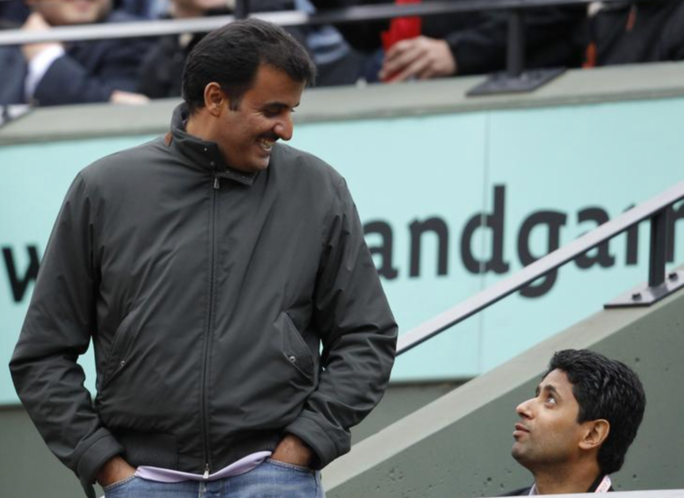
Enlargement : Illustration 3

PSG president and BeIN Media chairman and CEO Nasser Al-Khelaifi, who earlier this year was also placed under investigation in France, was questioned for a second time last week by Judge Van Ryumbeke, as first revealed by French sports daily L’Equipe. Al-Khelaifi insists he is innocent of any wrongdoing. “There is no affair […] Mr Van Ryumbeke is mistaken,” his lawyer, Francis Szpiner, told L’Equipe.
Al-Khelaifi refused to answer questions from Mediapart. Contacted by Mediapart, Szpiner said the 45-year-old “answers only to his judges, has no comment to make to you and recognises and regrets the violations of the [secrecy] of the investigation”.
Questioned by Judge Van Ryumbeke last week, Al-Khelaifi said he knew nothing of the 2011 transfer to Papa Massata Diack’s company of 3.5 million dollars, and that Oryx QSI was solely managed by his brother Khalid. However, during his questioning in March, he told the judge that he held a 50% stake in the company. A document provided later to the investigation by one of his staff showed that he held a stake in the company only between 2013 and 2016. “My client never had power of signatory, and in 2011 he was neither a shareholder nor a manager of the company,” Szpiner told L’Equipe.
Al-Khelaifi also told Van Ruymbeke that in 2011 he played no role in Qatar’s bids to host sports events. “I absolutely did not involve myself in the negotiation for the world athletics championships or for the Olympic games,” he told the judge. “For these events, there is an organisation committee which I am not party to.”
But this investigation suggests otherwise. At the time of the events in question, he was a member of a secret committee made up of five people, nicknamed “the brain trust”, which had the mission of helping Crown Prince Tamim bin Hamad Al-Thani and his sister, Sheikha Al-Mayassa bint Hamad bin Khalifa Al-Thani, with the project to host the 2020 summer Olympic games. In an email, the crown prince’s chief of staff wrote that “His Highness” personally validated the composition of the committee, on which Nasser Al-Khelaifi was placed in charge of “media-related issues”.
Other documents show that Al-Khelaifi, as the then boss of broadcaster Al Jazeera Sports (now BeIN Sports), was also mandated to help Qatar become host of the 2017 athletics world championships. On June 26th 2011, a letter was addressed to him by Saoud bin Abdul Rahman Al-Thani, a fellow member of the “brain trust” for the 2020 Olympic games, who presided Qatar’s committee of candidature for the 2017 athletics championships. In it, he requested from Al-Khelaifi that Al Jazeera Sports “support” Qatar’s bid, notably by acquiring television rights for the Middle East and North Africa of all IAAF-organised games for the period of 2014-2019. The Qatari broadcaster already had those same rights but only up until 2013.
In a reply dated July 3rd 2011, Al-Khelaifi agreed to the request, adding that the broadcaster “is very pleased to be part of the team of the Doha 2017 IAAF World Championship bid committee and working closely toward the success of this event in Qatar”.
'Parcels' promised to members of the IOC executive board
The documents were handed over to Judge Van Ruymbeke by Yousef Al Obaidly, general manager of BeIN Sport, who has also been placed under investigation by Judge Van Ruymbeke for “active corruption”. Mediapart has obtained access to the statements he gave Van Ruymbeke, in which he defended Al-Khelaifi, saying that the latter was “not present at the time of the reception of the letter” and that his reply was signed by one of Al-Khelaifi’s staff.
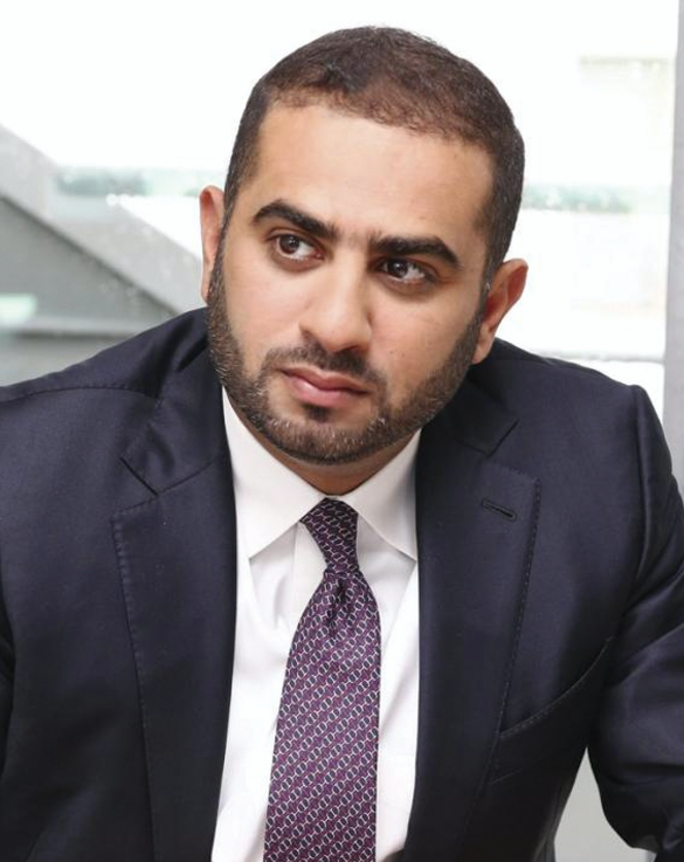
Enlargement : Illustration 4

But it appears improbable that Nasser Al-Khelaifi was not informed of his signature to a document which engaged him personally in an affair of such importance. As to the question of whether Yousef Al-Obaidly informed Al-Khelaifi of the signature, he told Van Ruymbeke: “I can’t remember. Maybe I did so, but he was not involved in this business.”
Al-Obaidly recognised his “special relationship” with Al-Khelaifi. He used to play tennis with him around 30 years ago, then worked for the latter at the Qatari tennis federation, before joining Al-Khelaifi as a member of staff on what was to become BeIN Sport, Al Jazeera Sports. As well as being a board member of football club PSG, he is also on the board of the club’s owner, the Qatari Sport Investment fund.
In 2011, Al-Obaidly was the commercial director for Al Jazeera Sports. He was responsible for ensuring the pledge his boss made to the Doha 2017 committee of acquiring the Middle East and North Africa rights to the IAAF events. That led to his meeting with Papa Massata Diack, who was mandated by the IAAF to sell them. According to Al-Obaidly’s statement to the French investigation, he was told that more “financial incentives” were required.
But, according to his testimony, there was a technical problem in that the broadcaster could buy broadcasting rights, estimated to be worth 1.5 million dollars, but not sponsorship rights, for which Papa Massata Diack wanted 30 million dollars. Al-Obaidly explained that the solution could lie in finding a company that would acquire both rights, and then separately sell the broadcasting rights and deals for sponsorships.
Al-Obaidly said he alone decided to put the idea to Khaled Al-Khelaifi, his boss’s brother and manager of Oryx QSI, and who he described as a “friend”. Oryx QSI, he said, “would have won a lot of money if the vote had been favourable”. He declared that he and Al-Khelaifi negotiated the rights with Papa Massata Diack for an agreed 32.6 million dollars, conditional to Qatar obtaining the IAAF’s 2017 World Championships, an agreement which could theoretically influence the award.
At the time, Qatar had used a similar approach to host the 2022 football World Cup, as revealed by The Sunday Times in March this year. In November 2010, three weeks before the vote that awarded the World Cup to Qatar, Al Jazeera secretly offered 300 million dollars for broadcasting rights, with a further 100 million dollars if the World Cup was awarded to the Gulf state. The contract was finally signed by Nasser Al-Khelaifi and Yousef Al-Obaidli.
But concerning the IAAF World Championships, Papa Massata Diack wanted unconditional agreement for the payment of 5 million dollars, which he claims was negotiated directly with the chief of staff of the crown prince during his visit to Doha on October 4th 2011.
Al-Obaidly was also present during the meetings that day in Doha. He refused to answer Mediapart’s questions about what happened during the talks, but in his testimony to Judge Van Ruymbeke, he said that Papa Massata Diack had “set out the terms of [the] contract” and had insisted on a payment of 3.5 million dollars to the latter’s company Pamodzi, adding: “He didn’t allow us space for discussion.” Al-Obaidly said he did not recall informing Nasser Al-Khelaifi.
Contacted by Mediapart, he refused to answer precise questions, but returned a statement which read: “I voluntarily attended an appointed meeting as part of a preliminary investigation. The allegations raised are not only utterly baseless and unsubstantiated, but they have been – quite remarkably – leaked to the media repeatedly over many weeks. It seems that the basic facts and any respect for due legal process are wholly irrelevant and ignored. For the avoidance of any doubt whatsoever, the allegations are completely and categorically denied and will be vehemently challenged using the full force of the law. It would not be appropriate to say anything further.”

Enlargement : Illustration 5
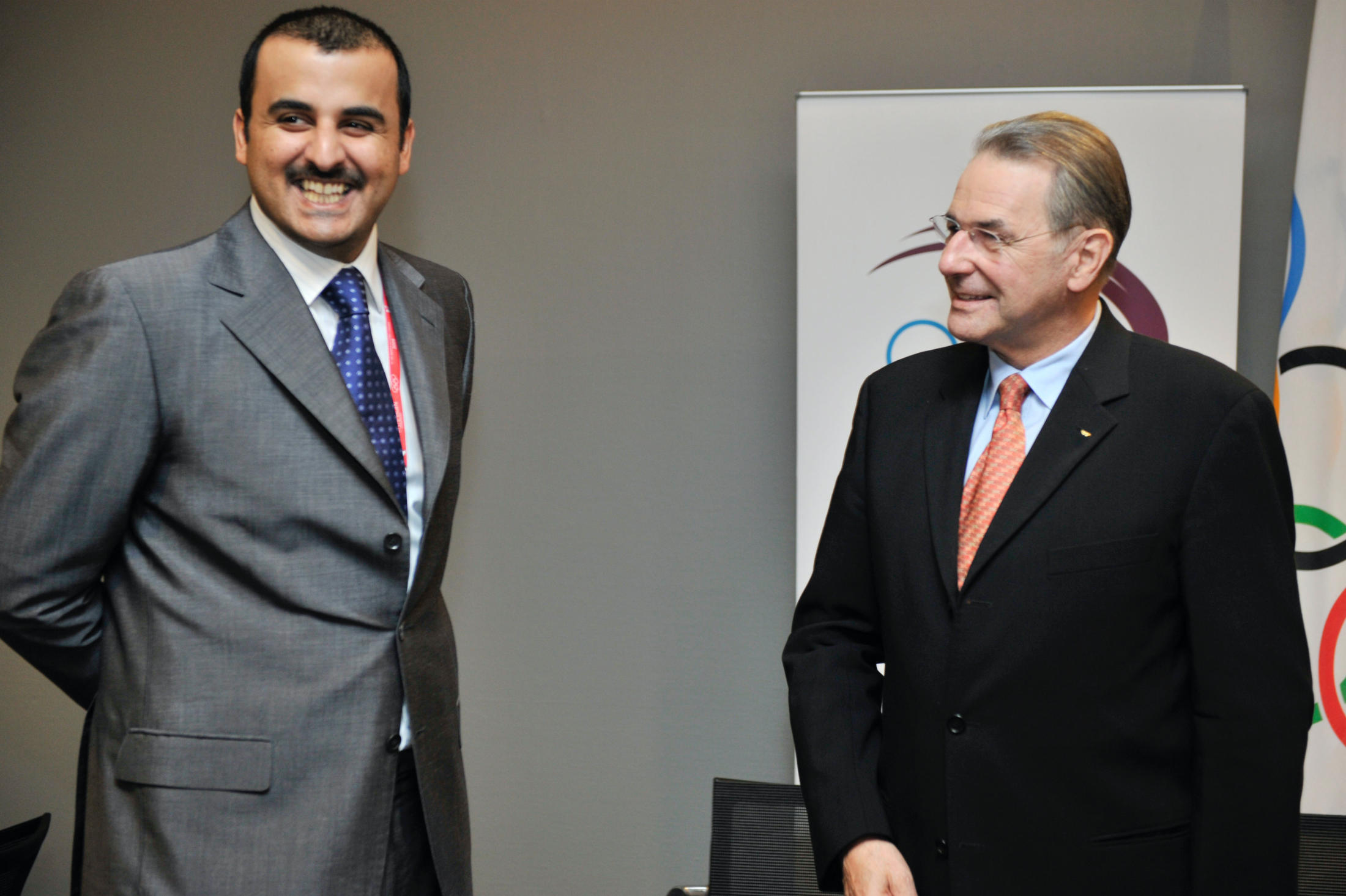
Al-Obaidly told Judge Van Ruymbeke that the 2011 payment of 3.5 million dollars to Papa Massata Diack was simply a “non-refundable” advance payment in the framework of a “perfectly legitimate commercial agreement” that was established “in full compliance” with IAFF procedures. He added that Pamodzi subsequently handed 3.2 million dollars of the sum to its partner Dentsu, a Japanese advertising and public relations agency, and retained only 300,000 dollars.
This investigation has also established that Papa Massata Diack began offering his services to the Qatari royal family at least three years earlier than the events described above.
On August 17th 2011, three months before receiving the Qatari payment totalling 3.5 million dollars, Papa Massata Diack wrote to the same Hotmail account that Mediapart could identify as being used by the crown prince’s chief of staff, in order to provide him “as promised” two letters written by his father in which the latter, as president of the IAAF, agreed that the 2017 athletics World Championships and the 2020 Olympic games would be held in September, which, on account of meteorological conditions, facilitated the Qatari bids for both.
In the process, Papa Massata Diack asked for a favour concerning the 2011 athletics World Championships that were to open in South Korea, in the city of Daegu, ten days later. The German broadcaster of the games had not by then found a sponsor, and PMD “urgently” asked the crown prince’s chief of staff whether Qatar Airways or another of the Gulf state’s companies would be interested in becoming an official partner for the German market in a deal worth 500,000 dollars.
One year earlier, in August 2010, Papa Massata Diack copied on to the same Hotmail account an email that he had just sent to the general secretary of Qatar’s Olympic games committee. In it, PMD had attached a document showing the provisional budget allocations, detail by detail, of the Daegu World Championships, as well as a confidential document about the organisation of the games. To all appearances, this may have been an attempt to help Doha in its own bid for the 2017 games.
In his email to the Qatari Olympic games committee general secretary, Papa Massata Diack spoke of how “His Highness” had accepted to fund the IAAF congress that was to be held during the Daegu games. He indicated that Sheikh Khaled bin Khalifa Al-Thani, chief of staff to the crown prince, had received documents “so the total Qatar Airways sponsorship can be maximised at US$ 25,500,000".
Another email sent by Papa Massata Diack, of which extracts have already been published by The Guardian, is even more controversial. On September 23rd 2010, PMD copied, on to the same Hotmail account that Mediapart could identify as being used by the crown prince’s chief of staff, an email he had sent two years earlier, on May 6th 2008, to a Qatari businessman who was involved in promoting the emirate’s ambitions in hosting sports events.
In early May 2008, Qatar was in the last stages of its attempts to bid for the 2016 Olympic games. But one month later, its candidature was rejected by the IOC on the grounds that the climatic conditions, essentially hot weather, during the dates proposed by Doha were incompatible with the sporting event.
In his email to the Qatari businessman, Papa Massata Diack, explained that his “special adviser went to Beijing specially to see his friends” in the executive board of the IOC. The six individuals in question, whose initials match those of board members, requested “to have their parcels delivered through the Special Adviser, in Monaco".
But Papa Massata Diack was apparently worried. He had informed the Qatari businessman about the “total amounts” to be delivered to be "diligently” provided by the special advisor “to third parties". He insisted that “our last chances to deliver our promises are within the next four working days”, and that otherwise, the special advisor cannot be responsible for “any withdrawal of commitment made by his friends at this crucial stage”.
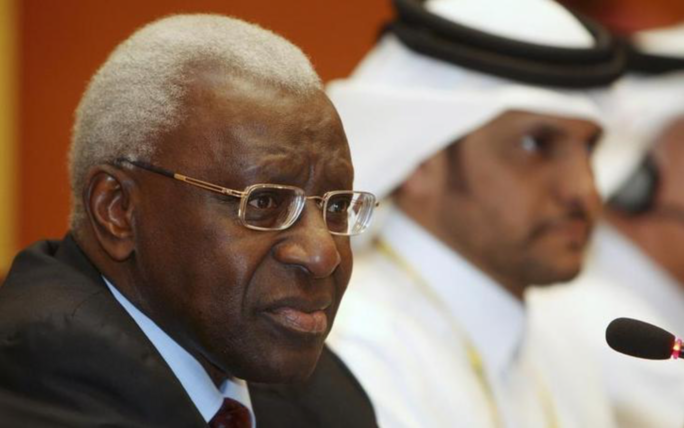
Enlargement : Illustration 6

Papa Massata Diack appeared to be all the more disgruntled because what he called the "efforts" of the "special advisor" were "in line of the discussions we had in Negresco [hotel in Nice, close to Monaco] with HH". He added that if "HH" had “any concerns or doubts” he should to go to Monaco to talk "face to face" with the special advisor.
Sources close to the IAAF suggested to The Guardian that the “special advisor” was none other than Papa Massata Diack’s father, Lamine Diack, then president of the IAAF. Corroborating that suggestion is the fact that Lamine Diack was due to leave Monaco, where the IAAF is based, for a trip to an athletics event in Moscow on May 9th 2008 – which would tally with the urgency of meeting the “special advisor”.
Contacted by Mediapart, Lamine Diack’s French lawyer, William Bourdon, said his client did not wish to comment on the issues raised in this investigation before giving his account to the investigating magistrate, Judge Renaud Van Ruymbeke.
There remains the question of why, in 2010, Papa Massata Diack forwarded on to the Qatari crown prince’s chief of staff his 2008 email, without any accompanying explanation. It can only be speculated whether this was a reminder that “parcels” have to delivered in order to win sporting events' bids. None of the interested parties accepted Mediapart’s requests for an interview on the subject.
-------------------------
If you have information of public interest you would like to pass on to Mediapart for investigation you can contact us at this email address: enquete@mediapart.fr. If you wish to send us documents for our scrutiny via our highly secure platform please go to https://www.frenchleaks.fr/ which is presented in both English and French.
--------------------------
- The French version of this report can be found here.
English version by Graham Tearse


